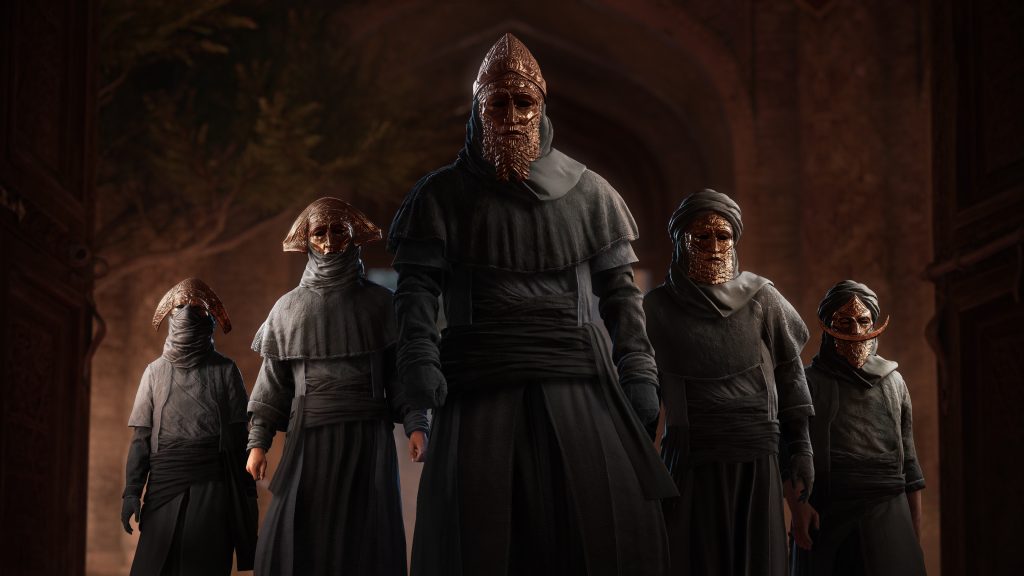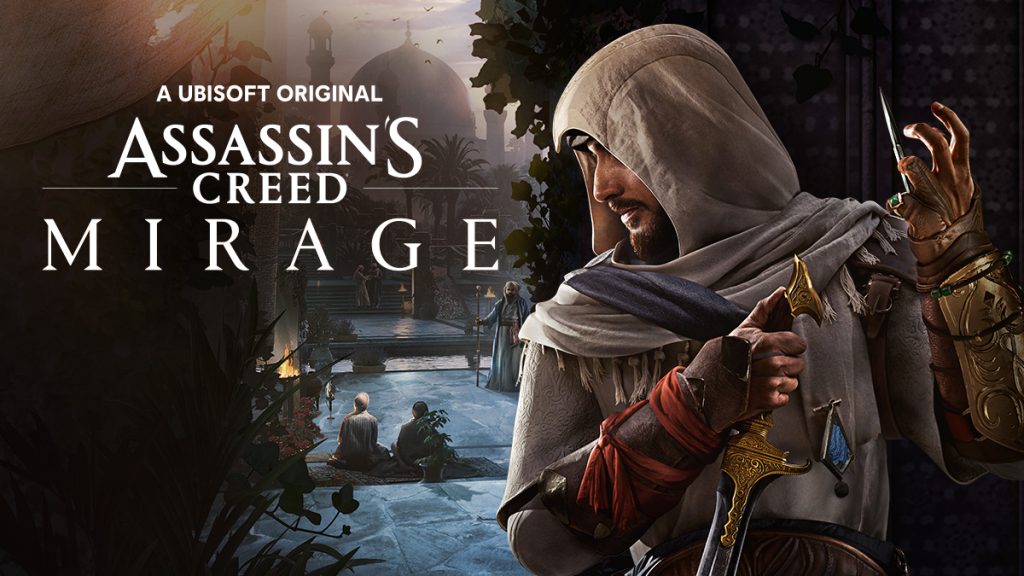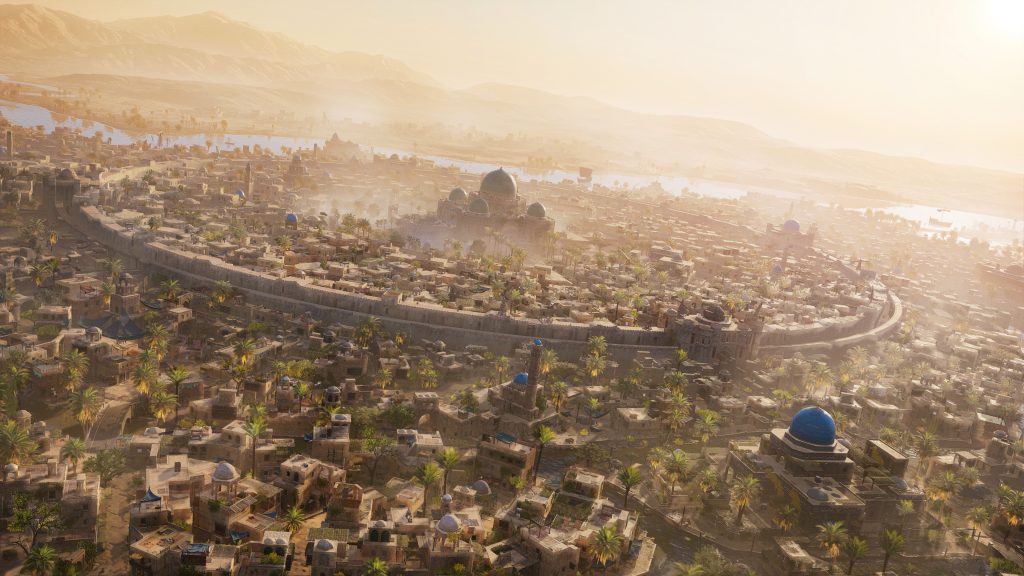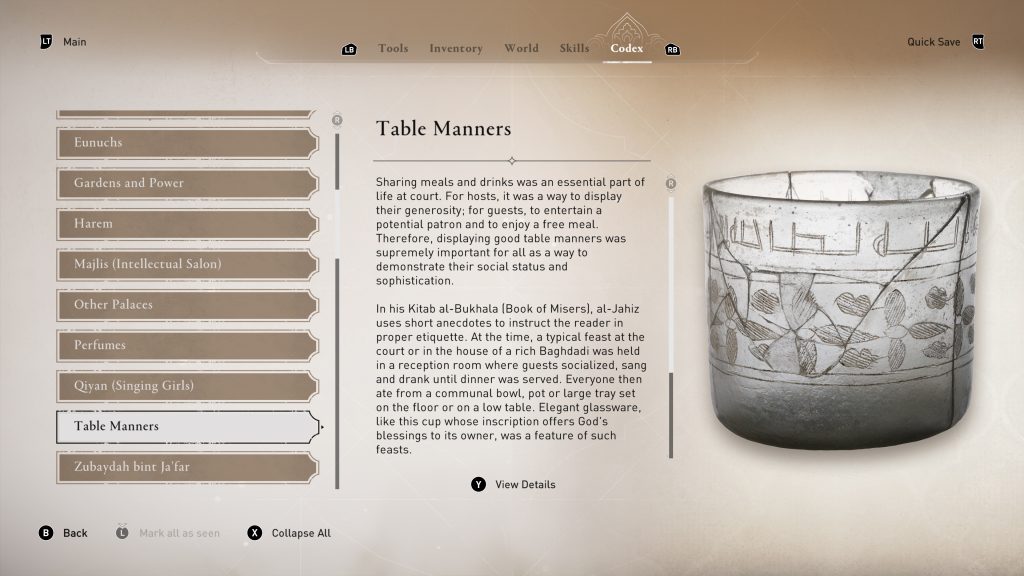Starting out as DLC for Valhalla, Assassin’s Creed: Mirage sees players take control of returning character Basim Ibn Ishaq in 9th-century Baghdad. Touted as a return to the series’ roots by fledgling subsidiary Ubisoft Bordeaux, Mirage takes a step back from the bloated open-worlds of the last three mainline Assassin’s Creed games, instead opting to focus on the best parts of the game that started it all.
While this is technically a prequel to Valhalla (an older Basim appears in England in that game), there is very little connecting the two games from a narrative standpoint. Mirage’s story is as self-contained as it is generic. There’s a secret order of Bad Guys in Masks who are being a nuisance in Baghdad, and there’s a secret order of Good Guys with Special Knives who are trying to take them out, one by one.
Basim as a protagonist is quite possibly the dullest in the entire series. He takes up the fight against the Bad Guys in Masks because they killed his surrogate family, and over the next 20 or so hours he will occasionally ponder whether running people through with swords is the right way to enact change. It’s all stuff this series has gone over time and time again. The narrative is so middle-of-the-road, so formulaic, that I struggle to even dislike it. It’s just… there.
Despite this, there is something to this game. The way Mirage narrows its scope is worthy of praise; even fans of the Origins, Odyssey, and Valhalla formula tend to agree that the mile-wide but inch-deep approach leads to franchise fatigue. Exploring an era and setting as underutilised as golden-age Baghdad is novel. If you’re like me and love poring over codex entries, which include real photos of art and artifacts of the time, then Mirage certainly won’t disappoint.
Instead of an ever-expanding quest log, Mirage features an investigation screen. As you encounter characters, read notes, and explore, you will activate different nodes that begin to build a mind map of the various members of the evil order. This, for me, is probably the most successful merging of old with new in Mirage. Despite it essentially working like a quest log in a different format, it really changes how exploration and story progression feel.
For example, talking to someone or reading a letter in one area of the city may open up the beginning of an investigation in an entirely different area. The game does not immediately pressure you to start that new series of quests, you can pick up that thread whenever you feel like it. It really conveys the sense that you’re slowly piecing together a larger conspiracy by following multiple leads, rather than going down a checklist.
Once enough clues have been acquired you will pinpoint your target, unlocking the assassination mission. This will turn a specific location in Baghdad, like the House of Wisdom or the Bazaar, into something akin to an extremely basic version of a level from the Hitman series. You know the target is in the area somewhere, and you have to set things up to gain access to them and take them out.
This might include disguising yourself as a eunuch, eavesdropping, tailing someone, or taking part in an auction. Once you complete these mini-objectives, you will gain access to the target and the secret order of Bad Guys in Masks will lose one of their own. Again, it’s basic stuff, but it does go a little way to putting the ‘assassin’ back into ‘Assassin’s Creed’.
Basim is also able to make use of several different tools like smoke bombs that let you return to stealth, blow darts to temporarily knock out enemies, and, of course, throwing knives. The utility of this toolset is mixed. The incentive to use them mostly lies in the fact that combat is frustrating, and so anything to avoid alerting guards to your presence is a good thing. Ultimately, using your hidden blade and running away if spotted is still a viable option.
Assassin’s Creed: Mirage is so inoffensive that it is difficult to provide a strong opinion on any one aspect that makes it up. At this point, if you’re a fan of the series you know what you’re in for, and while there is certainly a marked effort to pare back the bloat and try something a little different – or traditional – it’s hardly worthy of being called ambitious.
If you’re a sucker like me and can happily gorge yourself on most things this series has to offer, then you will likely have an OK time. If you’re looking for an interesting continuation of the modern-day story (ha), connections to Valhalla, or even a bold redirection of the series, then I’m afraid you are chasing a mirage.
Rating: 7/10
Assassin’s Creed: Mirage was reviewed on PC with a code provided by Ubisoft.





